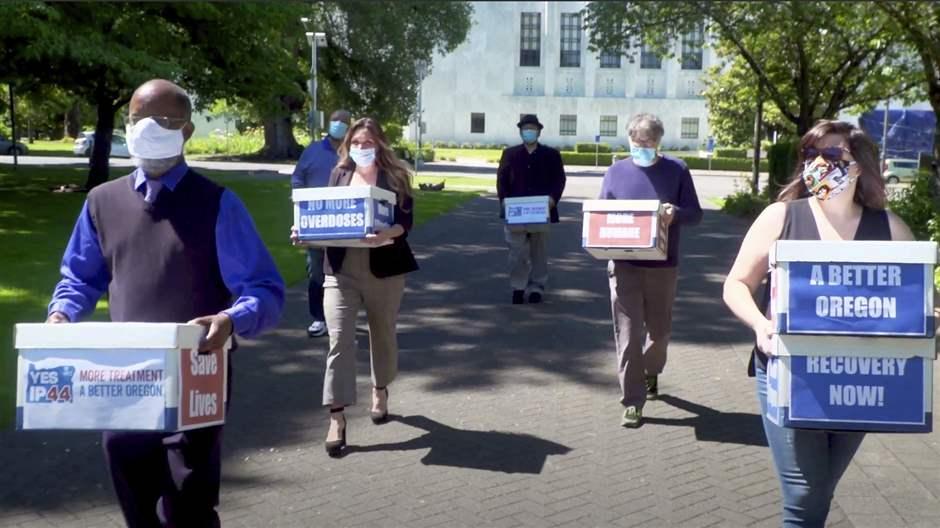A little over a year ago, Oregon became the first state to decriminalize personal-use drug possession. Measure 110 makes the possession of small amounts of hard drugs punishable by a civil citation rather than a criminal charge, a pioneering development that is moving us away from the prison pipeline that has been a cornerstone of our drug policy since Richard Nixon waged the War on Drugs. I find this step to be significant because it finally acknowledges that in order to treat substance abuse in America, it cannot exist as both a disease and a crime. In a time where our drug overdose epidemic is only worsening due to the influx of street fentanyl, radically changing our systems is a must.
Criminalizing substance use with the War on Drugs was never the right way to go. In the 50 years since Nixon’s policies began, this punitive approach has brought neither justice nor health. Street fentanyl is currently the leading cause of death for individuals from the ages of 18 to 45, according to Families Against Fentanyl. We are currently undergoing the worst addiction and overdose crisis in American history, illuminating the failures of our drug policy with incredible clarity. The stigma that surrounds addiction is only exacerbated with criminalization, which discourages drug use through punishment and shame. While many organizations are doing important work through conferences, research and public health initiatives, no amount of politically correct terminology can divorce addiction from its stigma if it remains a severely punishable crime. Stigma is one of the biggest roadblocks to recovery, and Oregon’s decriminalization starts the much needed journey of untangling the damaging messages that surround addiction so fiercely.
For many years, Oregon had some of the highest rates of drug and alcohol addiction, while also having little access to recovery services. Mike Schmidt, the district attorney for Oregon’s most populated county said, “What we’ve been doing for the last number of decades has completely failed. Criminalization keeps people in the shadows. It keeps people from seeking out help, from telling their doctors, from telling their family members that they have a problem.” Through Oregon’s tax revenue from marijuana sales and expected savings from the reduction in arrests and incarceration, there will be expanded funding and access to addiction treatment services. Coupled with the hopeful destigmatization of addiction, barriers to fully participating in areas such as education, employment and housing will be broken down. Despite Oregon’s measure not having been implemented for long, Portugal is cause for hope; in 2001, they decriminalized drugs and increased access to treatment. Their rates for drug use and drug-related deaths have declined and remained consistently below the EU average since 2001.
Oregon’s decriminalization of drug possession is the first step toward truly acknowledging that addiction is a disease and a health crisis in our country. As it is only in its first year of implementation, there are bound to be obstacles toward reducing addiction rates. However, the fact remains that people battling addiction should be able to receive treatment options without the harsh penalties and ruinous impacts of a criminal record. Decriminalization of drugs is the only way addiction can be handled as the public health issue it is. I remain hopeful that the choice made by Oregon will prove successful and that more states will soon follow suit.




